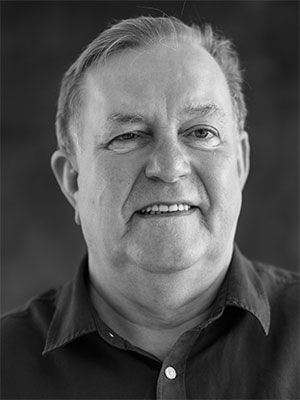
I am a BACP-accredited psychotherapist offering short and long term therapy to individuals and couples using a variety of techniques such as EMDR, CBT and Schema Therapy. I am also a trained clinical supervisor.
My aim is to develop a caring, safe and nurturing relationship with my clients and to work with them in providing a route map towards enabling them to deal better with life’s pressures and to develop a satisfying and happy work-life balance.
The first stage on the journey of mental healing with my clients is an exploration of their current problems – and personal strengths – followed by a gradual discovery and greater understanding of the issues which have been causing distress.
I tailor my approach to each client on the basis of individual need using the full range of my wide-ranging training, and aim to provide a practical and enduring ‘tool-box’ of techniques which allow clients to continue to deal with difficult challenges both during therapy and after it has ended.
Before becoming a psychotherapist, I enjoyed a career as a writer, communications consultant and executive for a wide range of companies around the world – from the BBC to Channel 9, Australia and the African Public Broadcasting Foundation – so I have abundant first-hand experience of the pressures of business life.
I trained as a psychotherapist at Regents University in London in a MA course covering psychodynamic, existential and humanistic practice, and have been working in the local Brighton and Hove community as a counsellor for more than a decade.
Since graduating, I have enhanced my core training through courses at Sussex University in Cognitive Behavioural Therapy; in London, Edinburgh and New York as a Schema Therapist; as a practitioner in EMDR (Eye Movement Desensitisation Reprogramming Therapy), and in attachment theory and the Dynamic Maturation Model (DMM) under Dr Pat Crittenden of the Family Relations Institute. I have also undergone training as a clinical supervisor.
I am a member of the International Society of Schema Therapists (ISST), qualification for which is the successful completion of the approved training courses.
I engage in regular supervision for all my client work and abide by the code of ethics set out by the BACP and the ISST.
Schema Therapy
This is a very practical and illuminating form of therapy which has clear, easily understood and fast-moving stages. It can show with great clarity how problems in our lives develop and can be resolved. .
There are 18 schemas – examples are abandonment, vulnerability to harm, self-sacrifice and unrelenting standards – and they develop as a result of our upbringing and difficult experiences such as bullying, rejection or traumatic events.
Therapy in this framework begins with a series of assessments which identify my clients’ individual schema ‘scores’. We also explore together information about exciting new developments in neuroscience which help to explain how negative emotional activation (such as fear and anger) combined with the high-scoring schemas keep us locked in problematic and self-defeating and often exhausting patterns of behaviour.
From the beginning the aim is to provide an easily-understood and helpful psychological ‘map’ or profile which provides the basis overcoming negative beliefs.
Schema therapy involves then working on a series of structured ‘assignments’ – some within the sessions and some as homework – which help clients to confront and rectify difficulties in their lives. I work with my clients to identify when their unhealthy patterns are repeating and ‘empathically confront’ reasons for change. The therapy also identifies needs which were unmet during childhood and my role as a schema therapist is to show how such deficiencies can be rectified.
Schema Couples Therapy
I underwent specialist training as a Schema Therapy couples therapist in New York.
On the basis of the core techniques outlined above, the schema ‘tool-box’ brings a new and exciting perspective to show how couples struggling to stay together can deal with the persistent problems and seemingly irresolvable difficulties in their relationships.
EMDR
Eye Movement Desensitisation and Reprocessing Therapy has been proven through extensive research to be potentially effective in treating trauma and is recommended by the UK’s National Institute for Clinical Excellence (NICE) for the treatment of PTSD. It can also be effective in the treatment of many anxiety-related disorders such as phobias and OCD.
I trained in this modality on a course approved by the EMDR Association and use it as part of my ‘tool-box’ with those clients whom I judge can benefit from this approach.
Business clients
I deploy a mixture of my knowledge as a psychotherapist and derived from my high-level business experience towards helping clients who are struggling with career and esteem -related issues.
The pressures of meeting the demands of a job can generate enormous tension both at work and at home and trigger feelings of inadequacy, loneliness and unpredictability. Schema Therapy – combined with other techniques according to need – can provide a unique ‘route map’ towards illuminating and sorting out the different areas of negativity, as well as providing an array of techniques for dealing with each new challenge as it arises.
Blogs by David Keighley
How therapy can help with anger issues
Do you have unrelenting standards?
Contact David directly
David works from the Hove Practice on Mondays, Thursdays and Fridays.
Please only contact one Practitioner at a time